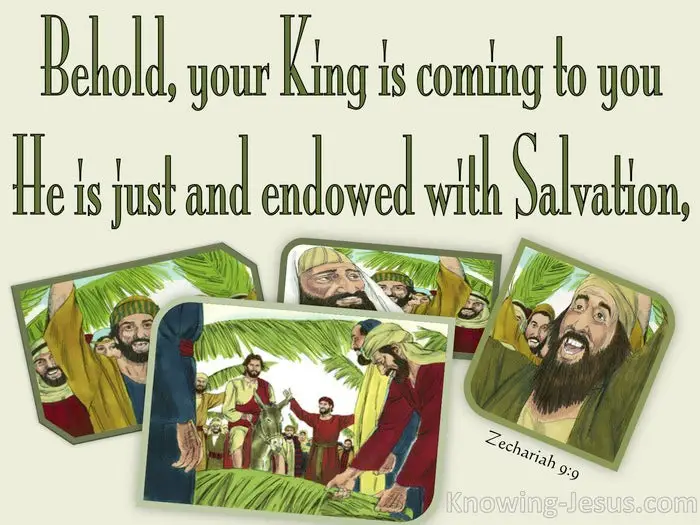



Colts are mentioned several times throughout the Bible, both in the Old and New Testaments. In this article, we will explore the significance of colts in the Bible and what we can learn from their mentions.
A colt is a young male horse, usually under four years of age. In the Bible, the term colt is used to refer to a young male donkey as well.
In the Old Testament, colts were often used as a symbol of strength, power, and royalty. For example, in Zechariah 9:9, it is prophesied that the Messiah will come riding on a donkey colt:
Rejoice greatly, Daughter Zion! Shout, Daughter Jerusalem! See, your king comes to you, righteous and victorious, lowly and riding on a donkey, on a colt, the foal of a donkey.
Here, the colt represents humility and meekness, as the Messiah comes not in a grand chariot or on a powerful horse, but on a humble donkey colt.
In Genesis 49:11, Jacob prophesies about his son Judah, saying:
He will tether his donkey to a vine, his colt to the choicest branch; he will wash his garments in wine, his robes in the blood of grapes.
Here, the colt is used to symbolize the abundance and prosperity that Judah will enjoy.
In the New Testament, colts are again used as a symbol of royalty and power. In Matthew 21:1-11, we read about Jesus entering Jerusalem on a donkey colt:
As they approached Jerusalem and came to Bethphage on the Mount of Olives, Jesus sent two disciples, saying to them, “Go to the village ahead of you, and at once you will find a donkey tied there, with her colt by her. Untie them and bring them to me. If anyone says anything to you, say that the Lord needs them, and he will send them right away.” This took place to fulfill what was spoken through the prophet: “Say to Daughter Zion, ‘See, your king comes to you, gentle and riding on a donkey, and on a colt, the foal of a donkey.’” The disciples went and did as Jesus had instructed them. They brought the donkey and the colt and placed their cloaks on them for Jesus to sit on. A very large crowd spread their cloaks on the road, while others cut branches from the trees and spread them on the road. The crowds that went ahead of him and those that followed shouted, “Hosanna to the Son of David!” “Blessed is he who comes in the name of the Lord!” “Hosanna in the highest heaven!” When Jesus entered Jerusalem, the whole city was stirred and asked, “Who is this?” The crowds answered, “This is Jesus, the prophet from Nazareth in Galilee.”
Here, the colt represents Jesus’ kingship and authority, as the crowds shout “Hosanna to the Son of David!” and “Blessed is he who comes in the name of the Lord!” as he enters Jerusalem.
From the mentions of colts in the Bible, we can draw several lessons:
Colts are mentioned several times throughout the Bible, and their significance varies depending on the context. In the Old Testament, colts were often used as a symbol of strength, power, and royalty, while in the New Testament, they were used to symbolize Jesus’ kingship and authority. From these mentions, we can draw lessons about the importance of humility, the trustworthiness of God’s promises, and the centrality of Jesus as our king and savior.
Related Posts